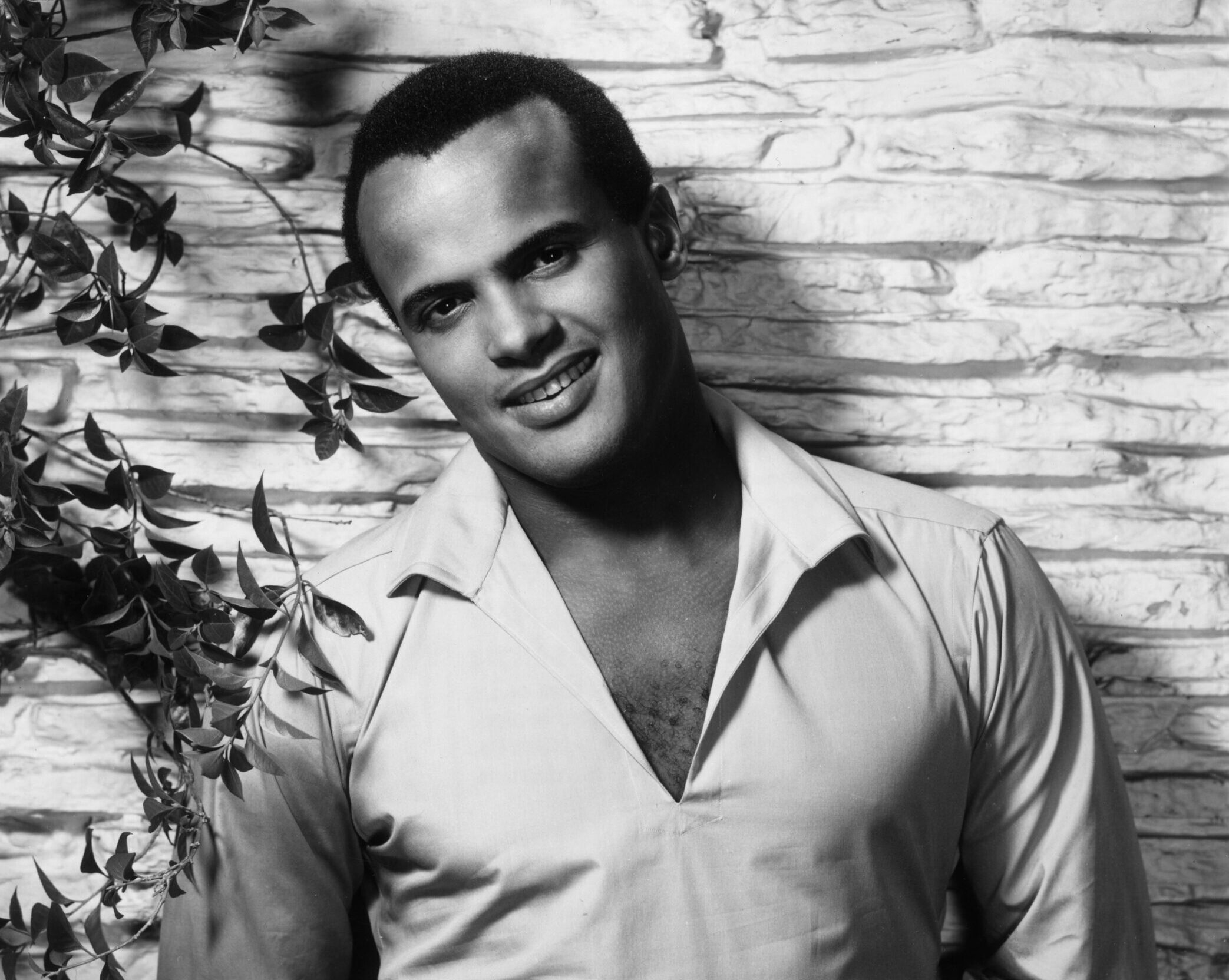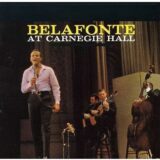Harry Belafonte, a transformational figure in American entertainment and activism, died at the age of 96 at home in Manhattan on April 25. The figurehead in popularizing calypso in America in the mid-‘50s, Belafonte became the first artist to sell a million copies of a full-length album. Belafonte the activist also marched with Martin Luther King, Jr. in the Civil Rights era and championed causes like the anti-Apartheid movement.
Thanks to 30 studio albums in wildly varied genres, acclaimed film, TV, and theater work, and decades of live performances, Belafonte’s impact on the world was bigger than music, but his distinctive baritone on songs like “Day-O (The Banana Boat Song)” and “Islands in The Sun” has endured far beyond his heyday as a hitmaker. Here’s a look back at Harry Belafonte’s 10 greatest moments as a recording artist.
10. “Lean on Me” (1949)
Harry Belafonte’s music career started somewhat by accident while he was pursuing his acting ambitions in the late ‘40s. Studying drama at The New School alongside Marlon Brando and Sidney Poitier, Belafonte paid for his classes by singing in New York clubs, sometimes backed by jazz legends like Charlie Parker and Miles Davis. Belafonte made his recording debut on a Roost Records single accompanied by Howard McGhee and His Orchestra. The A-side was a jazzy ballad called “Lean on Me,” written by Allan Green and Ed Waldman (not to be confused with the “Lean on Me” penned decades later by Bill Withers), with a tenor sax solo by Brew Moore.
9. “Mark Twain” (1954)
Belafonte took an interest in folk music in the ‘50s, studying material he found in the Library of Congress’ archives, which inspired his first full-length LP for RCA Victor. The opening track from Mark Twain and Other Folk Favorites emphasized Belafonte’s gifts as a storyteller, alternating between oratory passages and sung refrains with spare accompaniment from acoustic guitarist Millard Thomas.
8. “Matilda (Live at Carnegie Hall)” (1959)
Belafonte was born in Harlem, but both of his parents were born in Jamaica, and Belafonte experienced his greatest success as a singer by embracing his Caribbean roots. Calypso, a genre that originated in Trinidad and Tobago, became Belafonte’s signature after he recorded “Matilda,” first as a single in 1953 and then on his second album Belafonte in 1955. When Billboard unveiled its first weekly album sales chart in 1956, Belafonte was the No. 1 album in America, dethroned a month later by Elvis Presley’s debut. “Matilda” was first recorded by Trinidadian singer King Radio, but Belafonte made it the centerpiece of his live performances, stretching it out to 12 minutes with call-and-response sections on 1959’s Belafonte at Carnegie Hall.
7. “Man Smart (Woman Smarter)” (1956)
“Man Smart (Woman Smarter)” was another song originated by King Radio that Belafonte recorded for his third album. Calypso was a sensation, topping the charts for 31 weeks and becoming the first LP ever to sell a million copies, beginning American pop music’s enduring love affair with Caribbean music that flourished in the following decades with the rise of reggae, ska, and dancehall. Belafonte’s music reached a new generation in 1988 when four of his songs, including “Man Smart,” were featured in the Tim Burton comedy Beetlejuice.
6. “Skin to Skin” with Jennifer Warnes (1988)
The same year that his ‘50s hits were revived in Beetlejuice, Belafonte released his final studio album, 1988’s Paradise in Gazankulu. Recorded partly in Johannesburg with African musicians including Youssou N’Dour, the album was part of a wave of American protest music against South Africa’s Apartheid, which would finally come to an end in the early ‘90s. The single “Skin to Skin” was a major hit throughout Europe featuring Jennifer Warnes, a singer best known for hit duets with Joe Cocker and Bill Medley.
5. “Island in the Sun” (1957)
Belafonte’s first box office hit was Carmen Jones, although his singing voice in the film was dubbed by another performer. Belafonte sang the title song in his next film, Island in the Sun, however, which he penned with one of his closest musical collaborators, Barbadian-American songwriter Irving Burgie. Island in the Sun was controversial for its depiction of an interracial relationship between Belafonte and Joan Fontaine, but still went on to become one of the most popular films of 1957.
4. “Jump in the Line” (1961)
“Island in the Sun” was Belafonte’s last Hot 100 hit, but his albums continued to sell well, particularly when he returned to Caribbean styles on 1961’s Jump Up Calypso. The album’s most enduring track, “Jump in the Line,” was originally written by Trinidadian calypso legend Lord Kitchener in 1946.
3. “My Angel (Malaika)” with Miriam Makeba (1965)
In the ‘60s, Belafonte became a friend and mentor to South African singer Miriam Maeba, inviting her to perform with him at Carnegie Hall. Belafonte won his second Grammy for Best Folk Recording for their album as a duo, An Evening With Belafonte/Makeba. The album’s rendition of the Swahili love song “Malaika” helped make it one of the most popular African songs throughout the world.
2. “Turn the World Around” (1977)
The title track to the 1977 album Turn the World Around, which Belafonte co-wrote with Robert Freedman, is best remembered for a 1978 performance on The Muppet Show. Belafonte worked with Jim Henson on designing the masks that Muppets wore in the scene, evoking African tribal masks without using any patterns that could cause offense with religious or national significance.
1. “Day-O (The Banana Boat Song)” (1956)
Belafonte’s riotously catchy adaptation of a song that originated at the turn of the century by Jamaican dock workers was his biggest hit, reaching No. 5 on the Billboard Hot 100 charts. And it continues to echo through pop culture decades later, from Beetlejuice to a sample on Lil Wayne’s 2010 single “6 Foot 7 Foot” that returned the song to the top 10.





